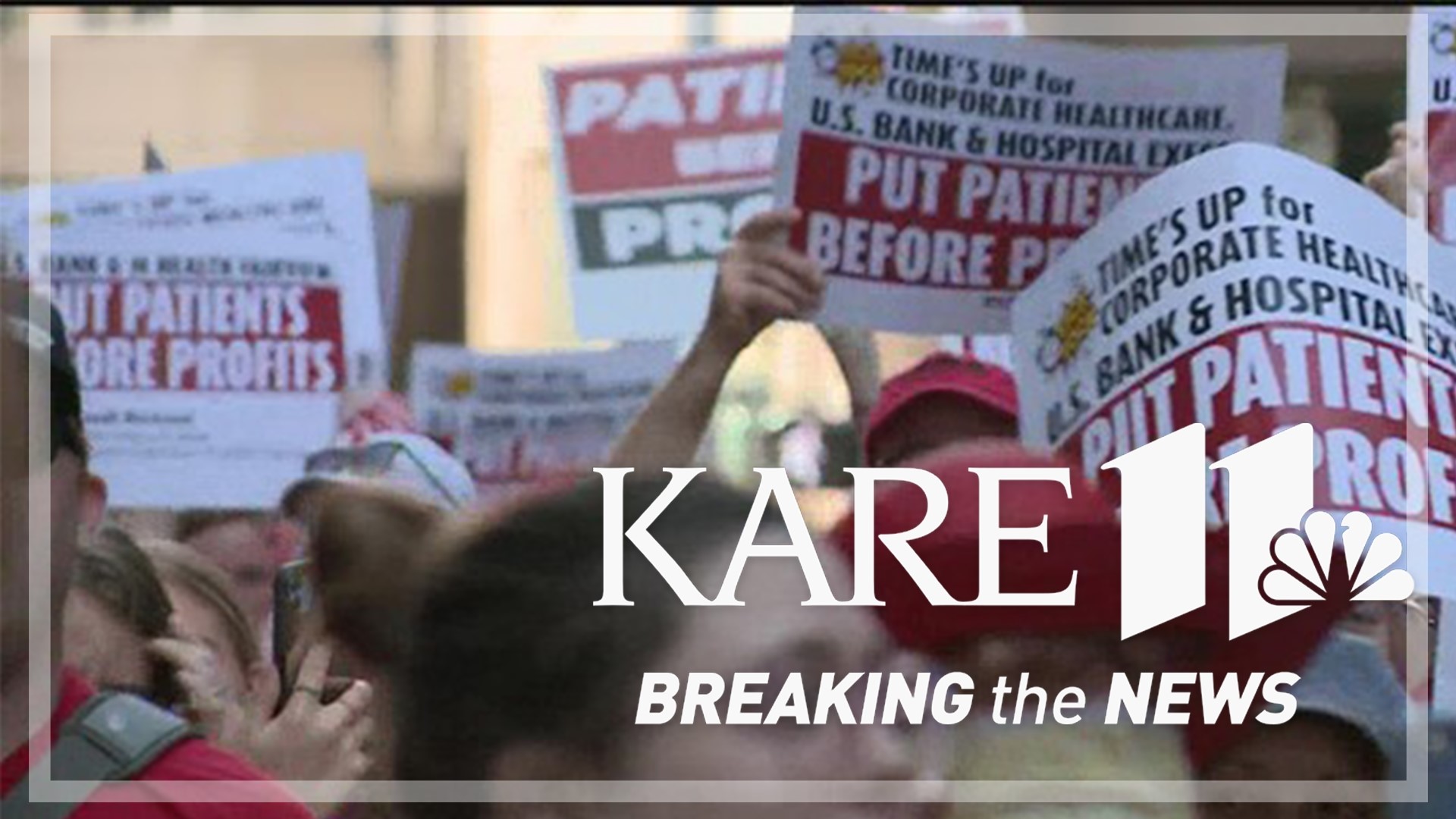MINNEAPOLIS — If you're wondering if nurses strikes has potentially deadly consequences for patients, a landmark study, which examined 20 years of evidence from strikes in New York state, provides a sobering answer.
"We found that, during the period nurses were on strike, a death rate increase of almost 20%," said Jonathan Gruber, Ford Professor of Economics at MIT, and one of the studies of the study Do Strikes Kill? Evidence from New York State.
Erdahl: "How do you think the pandemic has changed what you found?"
Gruber: "I think it's heightened the issue. There is a massive undersupply of nurses. Many nurses have opted out of returning, either becoming traveling nurses or moving on to new careers, and there is just a desperate shortage. If anything, that would make our results more worrisome in the context of a strike today."
Gruber shared his research, and concern, with KARE11 prior to the first, three day, nurses strike in September, but says the circumstances surrounding the proposed three week strike on Dec. 11, are even more worrisome.
"You know, for a shorter strike, people can defer, we saw a lot of people deferring their care," he said. "In a longer strike that gets harder to do. You're certainly at a dangerous time of year with winter coming in Minneapolis and people getting hurt shoveling snow or other winter activities, so I think the longer it's going to be, the more dangerous it is for the health of Minnesotans."
It would also come in the midst of a wave of respiratory illnesses that are already straining hospitals. Just before Thanksgiving, administrators and doctors held a rare news conference to raise awareness about bed availability and Emergency Department wait times due to RSV and the flu.
Though hospitals have announced plans to supplement staffing with traveling nurses in the case of a strike, Gruber says the evidence isn't on their side.
"We didn't find that it made things a whole lot better in our study," he said. "The notion that we can just fill these spots with replacements is not true, and once again, particularly worrisome given the shortage of replacements that are even out there today. In the period I was studying, there were replacements available."
But if you think that bolsters the case for either nurses or hospitals right now, he says you're missing the point.
"We are not opining on whether the nurses in Minnesota are compensated too highly to too little or the other working conditions," Gruber said. "All we're saying is it's very painful for patients to resolve those differences through a strike and that other means of resolving those differences would be a lot less damaging to the health of Minnesotans."
He says resolving those differences would also help both nurses and hospitals address the biggest issue right now.
"We need to be doing whatever we can to encourage workers to come into the sector," he said. "We need to encourage training, so that workers already in the sector can get trained up to take the jobs going unfilled and those are the things we have to worry about in the long run."
With so much at stake for patients, Jonathan says it's surprising that our government rarely plays an active role in avoiding strikes.
"In all the rest of the world, they don't do that," he said. "They recognize that this is a critical market and the government needs to be involved in arranging the compensation that's paid in the healthcare sector. I think, quite honestly, we've made a mistake leaving these vital health decisions purely to the private sector. The government has a role to play here and this is may be the leading edge of indicating how important the government's role could be."
In 2016, Minnesota Gov. Mark Dayton did play a limited role in ending a nurse's strike between Allina an its nurses. He called both sides into a negotiating session at the governor's mansion, which ultimately led to an agreement.
On Thursday, Gov. Tim Walz said that he's engaged with both sides and monitoring their progress. So far, hospitals report that they are making progress with nurses and Walz says he is still hopeful that the collective bargaining process will bring an agreement before the strike deadline.
"We are not opining on whether the nurses in Minnesota are compensated too highly to too little or the other working conditions, all we're saying is it's very painful for patients to resolve those differences through a strike and that other means of resolving those differences would be a lot less damaging to the health of Minnesotans."
And he believes an agreement would also help both nurses and hospitals address the issue driving all of this.
"We need to be doing whatever we can to encourage workers to come into the sector, to encourage training, so that workers already in the sector can get trained up to take the jobs going unfilled and those are the things we have to worry about in the long run."
Watch more Breaking The News:
Watch all of the latest stories from Breaking The News in our YouTube playlist:

